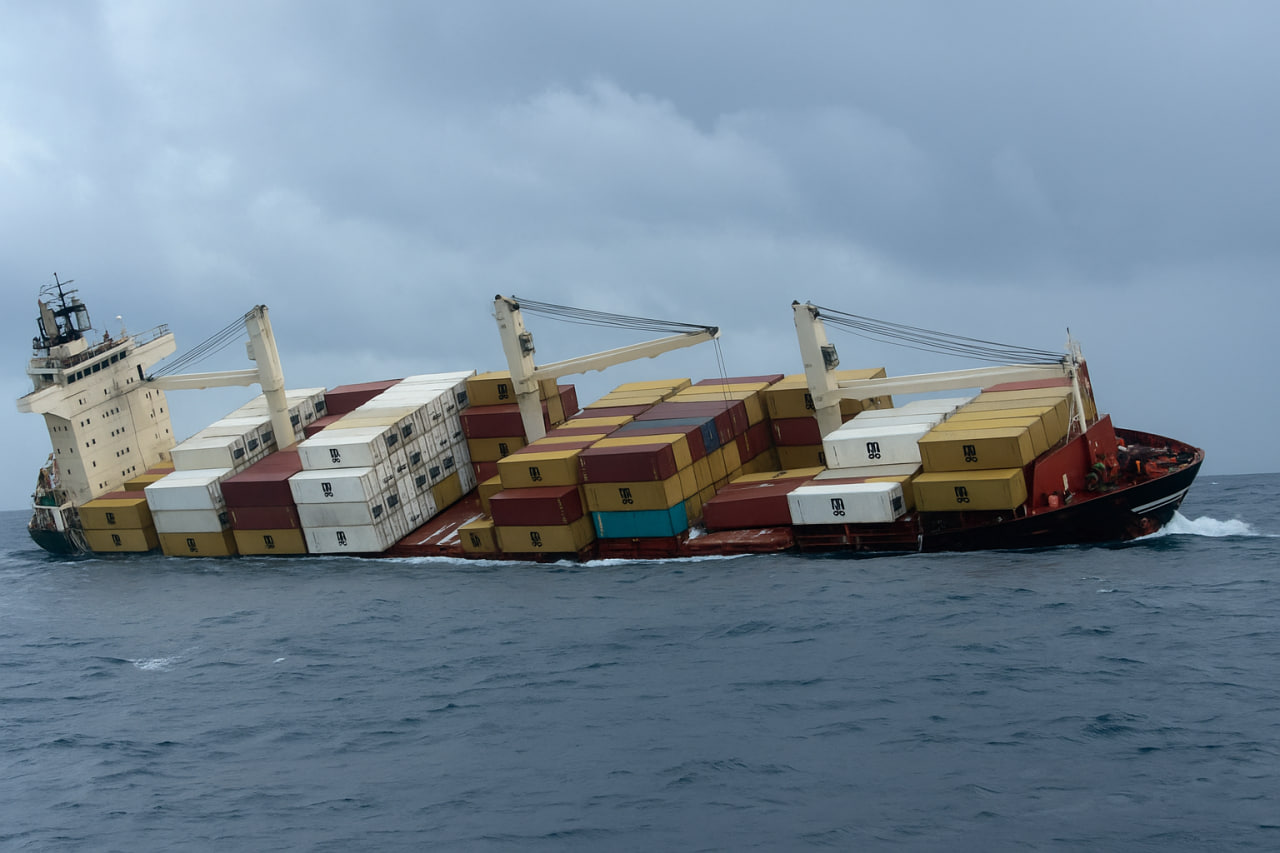



The Kerala High Court arrested the MSC Akiteta II, seeking ₹9,531 crore for environmental and economic damage caused by the sunken MSC Elsa III, linked to the same company. Citing the Admiralty Act 2017, the court ordered detention until compensation or security is provided, amidst allegations of corporate structuring to evade claims.

Copyright infringement not intended
Picture Courtesy: INDIAN EXPRESS
Kerala High Court conditionally arrests MSC Akiteta II at Vizhinjam, seeking ₹9,531 cr compensation for environmental and economic damage from MSC Elsa 3 oil spill.
On May 25, the ship known as MSC Elsa III sank off the Kerala coast. The ship carried more than 600 large containers. Some of these containers held plastic pellets, dangerous substances, and diesel fuel. The sinking of the ship severely polluted their marine environment.
It is a type of lawsuit that deals with legal problems related to the sea, ships, and shipping activities. For example, if two ships crash, if a ship causes pollution in the ocean, or if people argue about who owns a ship, these issues go to an admiralty court.
The Kerala government filed the lawsuit in the High Court because they believed the sinking of the MSC Elsa III harmed their environment.
The Kerala government demanded Rs 9,531 crore —because they claim the MSC Elsa III’s sinking damaged their marine ecosystem and impacted the livelihoods of local fishermen. The government wanted this funds to cover:
The Admiralty (Jurisdiction and Settlement of Maritime Claims) Act, 2017, governs maritime disputes. This law provides certain High Courts the power to hear and decide cases related to ships and the sea. It covers a wide range of "maritime claims," such as:
The Merchant Shipping Act, 1958, makes ship owners responsible for oil pollution damage if their vessels leak.
The Environment Protection Act, 1986, gives government authorities the power to take action against polluters.
The National Green Tribunal (NGT) is a special court that specifically handles environmental cases. For example, in 2016, the NGT ordered a shipping company from Panama to pay Rs 100 crore in damages for an oil spill after its ship, MV Rak, sank off the Mumbai coast in 2011.
The court agreed that the Kerala government's maritime claims were valid. It ordered the "arrest" and detention of the MSC Akiteta II. This means the ship cannot leave port until its owners either deposit the full Rs 9,531 crore or provide a suitable financial guarantee.
Source:
|
PRACTICE QUESTION Q. Discuss the concept of 'Green Shipping' and its importance in reducing the environmental footprint of maritime trade. 150 words |




© 2026 iasgyan. All right reserved